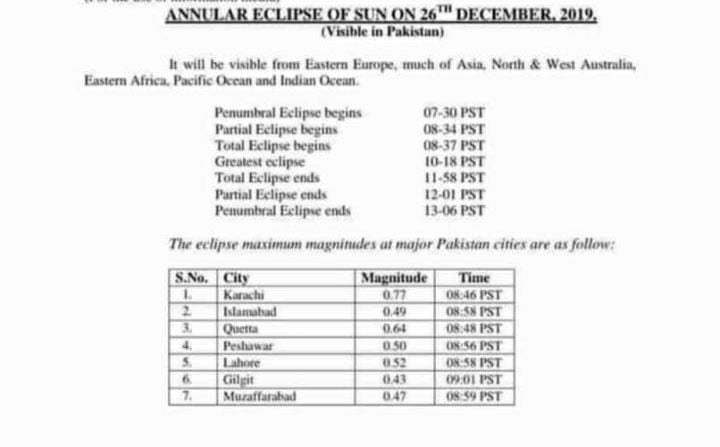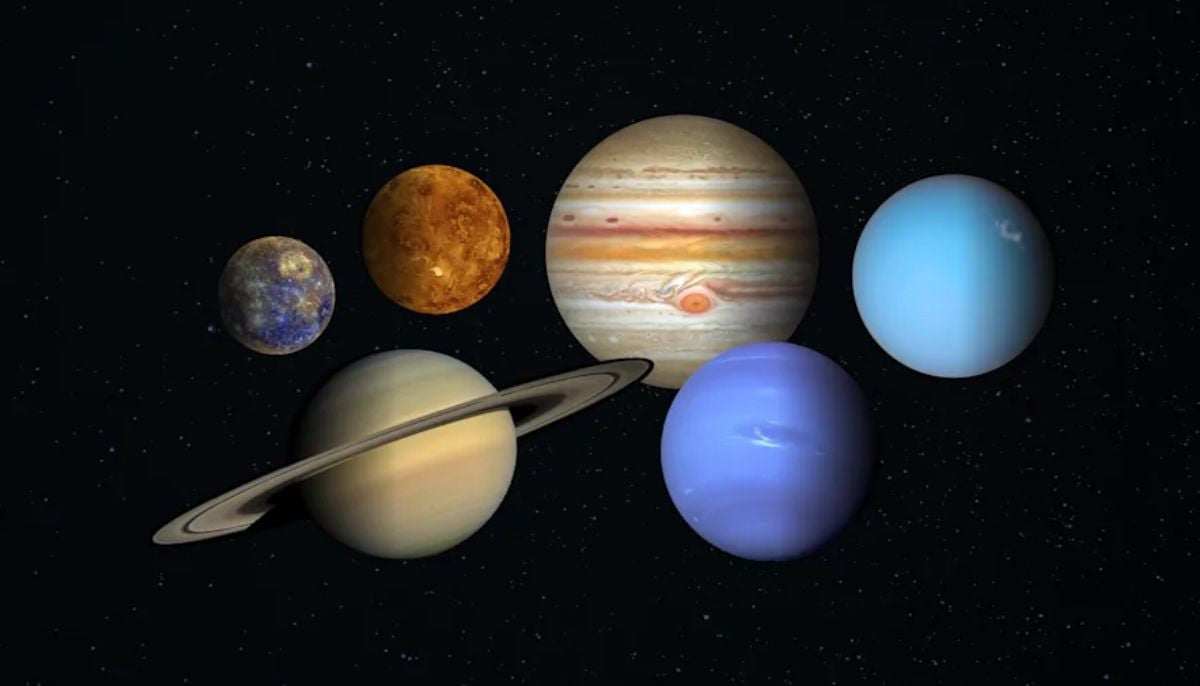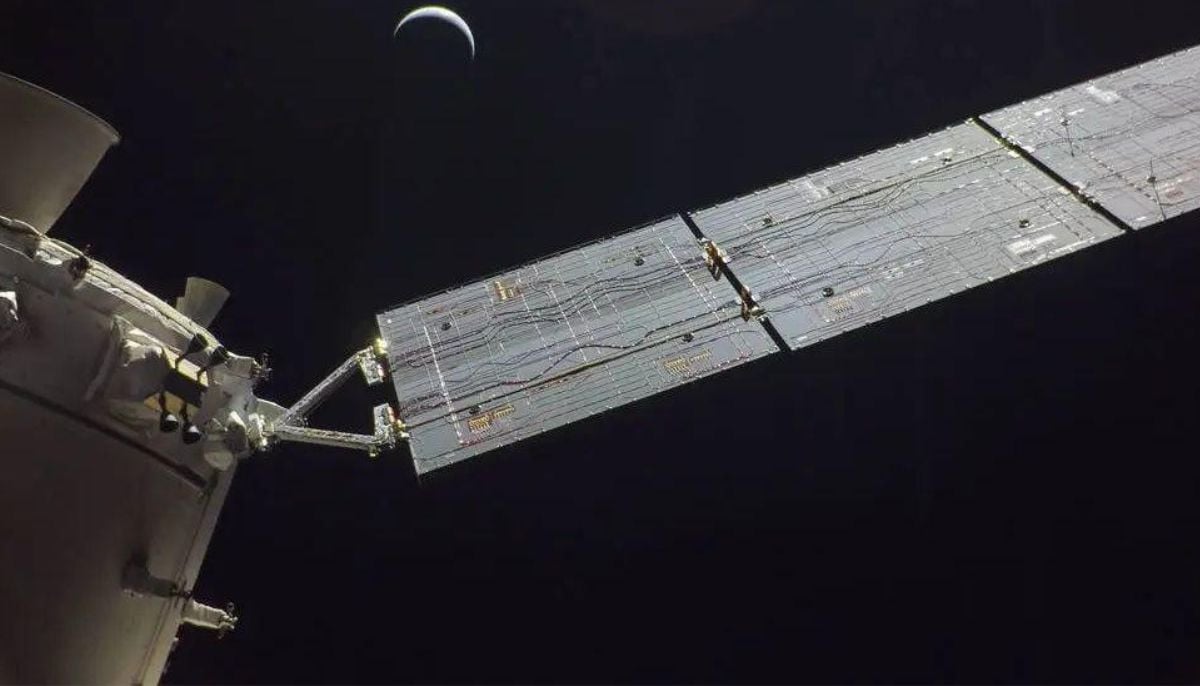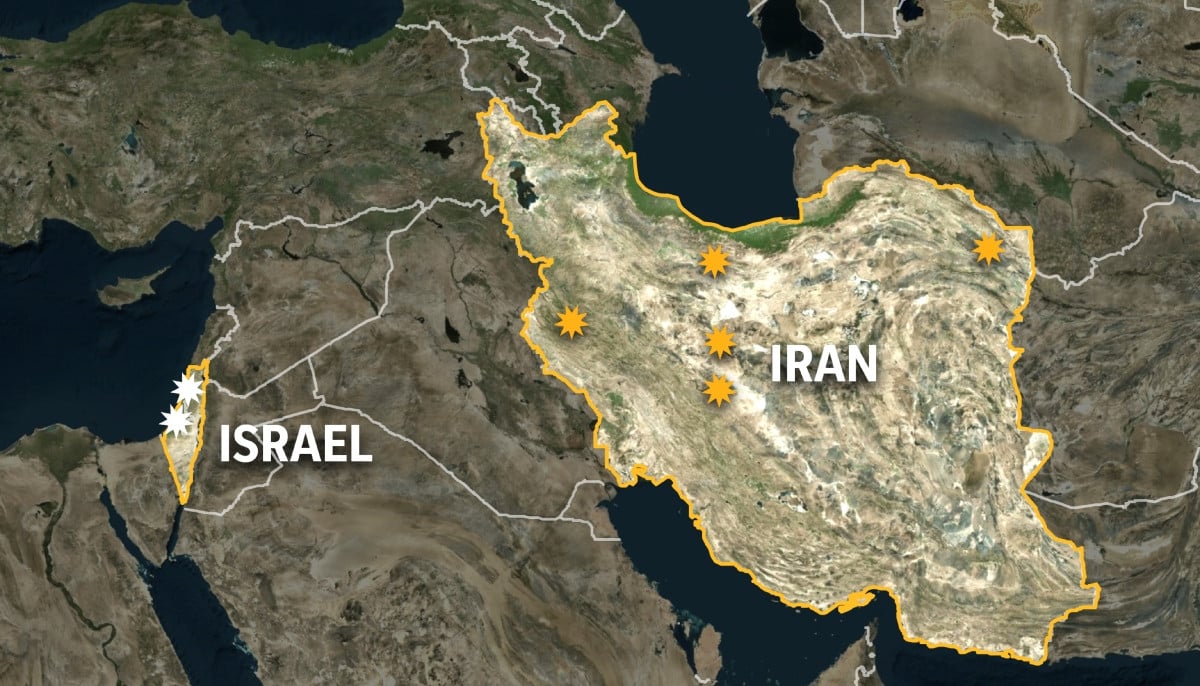Pakistan witnesses annular solar eclipse for first time in 20 years
Solar Eclipse 2019: Here are all the updates you would like to know about solar eclipse in Pakistan
KARACHI: December 26, 2019 may be the darkest day of the year across Asia as the annular solar eclipse returns to the region for the first time in 20 years.
The 'ring of fire' solar eclipse will result in the day turning dark in many Asian countries including Pakistan. The eclipse started at 7:30 am (local time) and turned into a total eclipse at 8:46 am.
Special prayers called Salatul al-Kasuf were offered at multiple places across the country — in line with the Islamic tradition of performing the prayers at the time of solar eclipses.
The time for Salat al-Kusuf lasts from the beginning of the eclipse till the time it ends.
Timings of the solar eclipse in Pakistan's different cities:
In Karachi, the eclipse started at 7:34am, reaching its peak at 8:46am while coming to a close at 10:16am.
In Islamabad, the total eclipse happened at 8:58am.
Moreover, it came to an end at 10:08am in Quetta after it began at 7:39am lasting for about two hours and 27 minutes in total, as per the Pakistan Meteorological Department.
In Lahore, the solar eclipse after starting from 7:47am came to an end at 10:19am. However, owing to the city’s foggy weather, the cosmic spectacle was scarcely visible.
Peshawar, on the other hand, witnessed the spectacle of the solar eclipse till 10:30am.
The celestial phenomenon also took place in multiple areas of Balochistan including Gwadar, Jiwani and their surrounding localities.
Federal Minister for Science and Technology Fawad Chaudhry while speaking to Geo Pakistan said that there are special instruments including binoculars available at Rawat in Islamabad that would provide a clear glimpse at the 'ring of fire.'
The United Arab Emirates saw a complete solar eclipse with 91.93 percent of the sun covered by the moon in the region.
The best time to view the eclipse had been around 09:am in Pakistan, India and other Asian countries and early afternoon in Indonesia, but precise times will vary from location to location.
Many countries in Asia have witnessed a solar eclipse, as well as some parts of eastern Africa and northern Australia, but a small area will experience an annular solar eclipse called a 'ring of fire' eclipse.
A solar eclipse happens when the moon passes directly between the Earth and the sun, but the type of eclipse that unfolds depends on how far away the moon is from the Earth.
Experts have issued a word of caution to not look directly at the sun without any protective eye apparatus as it could damage their eyesight. The radiation will be much more direct than it was during the last solar eclipse that occurred 20 years ago.
However, elaborate arrangements to observe the annular solar eclipse, with due provision for needed safety, have been made at the Astronomical Observatory.
-
China cuts anti-dumping duties on Canadian oil imports after final trade decision
-
NASA announces new Artemis moon mission aimed at expanding astronauts’ exploration efforts
-
Savannah Guthrie speculations 'sadly' coming true about mother Nancy
-
Trump administration warns of slow payouts for tariff refunds amid intensifying trade disputes
-
‘I saw nothing’: Bill Clinton denies knowledge of Epstein’s crimes in House testimony
-
Israel launches attack on Iran's capital and declares state of emergency
-
At least 15 dead after military plane carrying new banknotes plunges out of control in Bolivia
-
Daniel Serafini gets life without parole in in-laws murder and attempted murder case












